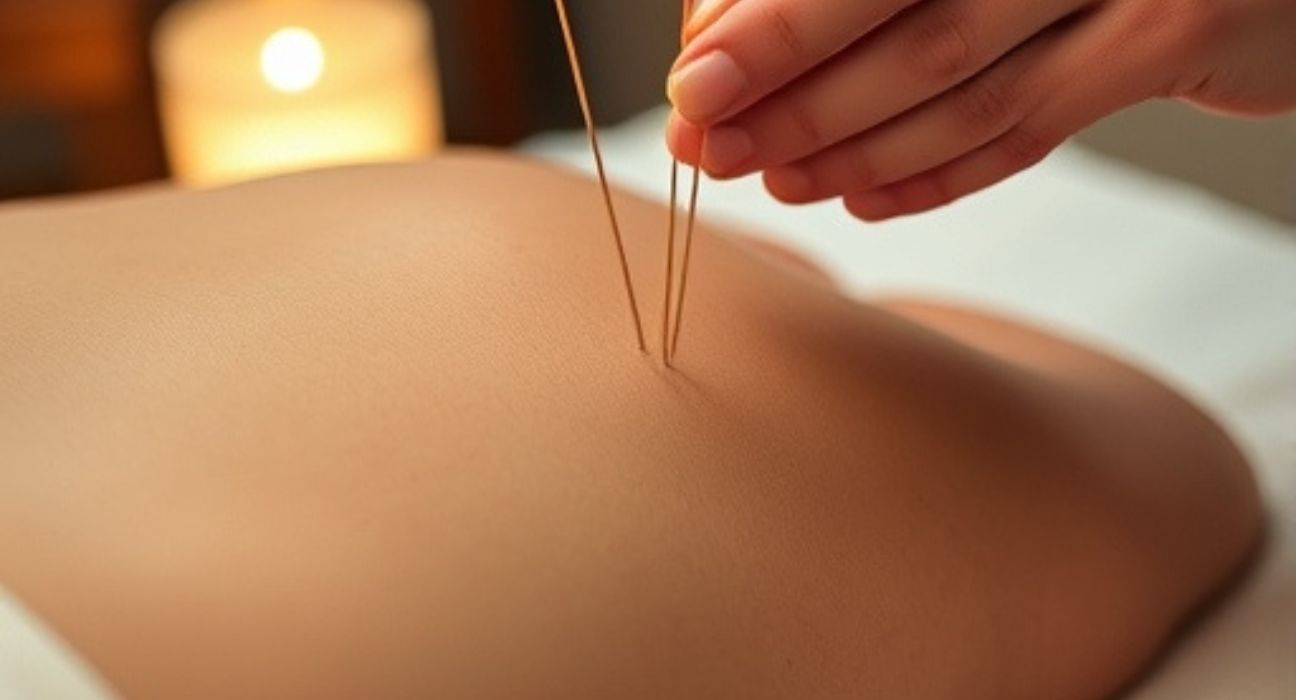Introduction to Acupuncture
Acupuncture is an ancient healing technique rooted in traditional Chinese medicine that has been practised for thousands of years. This method involves the insertion of very fine needles into specific points on the body, known as acupoints, to stimulate energy flow and promote natural healing processes. According to traditional Chinese beliefs, these acupoints lie along pathways called meridians, through which the body’s vital energy, or “qi,” flows.
In recent years, acupuncture has seen a surge in popularity worldwide, with many people turning to it as an alternative or complementary treatment for various health issues. Its applications range from pain management and stress relief to treating digestive disorders and improving respiratory health. The practice is based on the idea that by restoring the balance of qi, the body can heal itself more effectively.
Western medical research has started to explore the mechanisms behind acupuncture, suggesting that it may trigger the release of endorphins, the body’s natural painkillers, and influence the nervous system and immune responses. While the exact science is still being studied, many patients report significant improvements in their conditions after undergoing acupuncture treatment.
Despite its benefits, acupuncture is not a one-size-fits-all remedy and may not be suitable for everyone. The experience and outcomes can vary greatly depending on individual circumstances and the skill of the practitioner. Therefore, it is crucial to seek out qualified professionals who adhere to high standards of practice.
Whether you are considering acupuncture for pain relief, stress management, or overall well-being, understanding the principles and potential effects of this ancient practice can help you make an informed decision about its role in your health regimen.
Health Advantages of Acupuncture
Acupuncture is highly regarded for its ability to address a wide array of health conditions. Many people seek acupuncture to manage chronic pain, such as back pain, neck pain, and joint pain, finding relief where conventional treatments may have failed. This technique is also effective in treating migraines and tension headaches, providing a non-pharmacological option for those suffering from these debilitating conditions.
Digestive issues are another area where acupuncture can be beneficial. It has been used to treat conditions like irritable bowel syndrome (IBS), bloating, and indigestion, helping to regulate digestive function and alleviate discomfort. Respiratory health can also improve with acupuncture, aiding in the management of conditions such as asthma, allergies, and bronchitis by promoting better lung function and reducing symptoms.
Acupuncture’s impact on mental health is notable as well. It is known to reduce symptoms of anxiety and depression, helping individuals achieve a greater sense of mental clarity and emotional stability. The technique’s ability to promote relaxation and reduce stress can have a profound effect on overall well-being, contributing to improved sleep quality and better management of stress-related conditions.
Women’s health issues, including menstrual irregularities and menopause symptoms, can also be managed effectively with acupuncture. The practice helps to balance hormones and reduce associated symptoms, providing relief from conditions like painful periods and hot flushes.
Additionally, acupuncture has been employed to support fertility treatments, with some studies suggesting it can enhance the effectiveness of in vitro fertilisation (IVF) and other assisted reproductive technologies. Overall, the range of conditions that acupuncture can address makes it a versatile and valuable component of holistic health care.
Risks and Considerations
While acupuncture is generally considered safe when performed by a qualified practitioner, it is not entirely without risks. Some people might experience minor side effects such as slight bruising, bleeding, or mild pain at the needle insertion sites. These side effects are usually temporary and resolve on their own.
However, more serious complications, though rare, can occur. For example, there is a risk of infection if the needles used are not sterile. This is why it is crucial to ensure that your acupuncturist follows proper hygiene practices and uses single-use, disposable needles. Additionally, improper needle placement can lead to injury, such as punctured organs, though this is extremely uncommon with trained professionals.
People with certain medical conditions need to exercise caution. If you have a bleeding disorder, such as haemophilia, or are taking anticoagulant medications, you might be at higher risk of bleeding or bruising. Similarly, if you have a weakened immune system, you could be more susceptible to infections.
Pregnant women should be particularly cautious, as acupuncture at certain points may trigger uterine contractions, potentially leading to premature labour. Always consult with a healthcare provider before beginning any new treatment during pregnancy.
It is also important to discuss your full medical history and any medications you are taking with your acupuncturist. Certain conditions or medications might affect your treatment plan. For example, individuals with pacemakers should avoid electro-acupuncture, a form of acupuncture that uses a mild electric current, as it could interfere with the device.
Overall, while acupuncture has numerous potential benefits, it is important to approach it with an awareness of the possible risks and to take appropriate precautions to ensure a safe and effective treatment experience.
Selecting a Qualified Practitioner
Finding the right acupuncturist is a vital step towards ensuring a safe and effective treatment experience. It’s important to seek out practitioners who are certified and have undergone rigorous training in acupuncture. Check if they are members of recognised professional bodies, which often have directories listing qualified acupuncturists. These organisations typically set high standards for education and practice, ensuring that their members adhere to ethical guidelines.
When researching potential practitioners, look into their background and ask about their training and experience. Some acupuncturists may have additional expertise in areas such as pain management, fertility, or mental health, which could be particularly beneficial depending on your needs. Reviews and testimonials from other patients can provide insight into their effectiveness and bedside manner.
A good practitioner should be willing to discuss your specific health concerns and tailor the treatment plan accordingly. They should take a thorough health history and be open to answering any questions you might have about the procedure, the expected outcomes, and any potential risks. Transparency and clear communication are key indicators of a trustworthy professional.
During your initial consultation, observe the cleanliness and organisation of the practice. A reputable acupuncturist will use single-use, sterile needles and follow stringent hygiene protocols to minimise any risk of infection.
It’s also beneficial to find a practitioner with whom you feel comfortable and at ease. The therapeutic relationship plays a significant role in the overall effectiveness of the treatment. Trust your instincts and choose someone who listens to your concerns, makes you feel relaxed, and instils confidence in their abilities.
Getting Ready for Your Initial Session
Preparing for your initial acupuncture session involves a few simple steps to ensure you get the most out of your treatment. During the first consultation, your acupuncturist will take a detailed health history to personalise your session. Wearing loose, comfortable clothing is advisable, as it provides easy access to the acupuncture points on your body.
Eating a light meal a couple of hours before your session can prevent dizziness or fainting, which can sometimes occur if you attend the session on an empty stomach. It’s also a good idea to avoid consuming caffeine or alcohol before your appointment, as these substances can affect your body’s response to the treatment.
Arriving a bit early to your session can help you start in a relaxed state of mind. This extra time allows you to fill out any necessary paperwork and settle in before the treatment begins. Try to maintain an open and relaxed attitude; being calm can enhance the effectiveness of the acupuncture.
You might want to prepare a list of any questions or concerns you have about the treatment to discuss with your practitioner. This will help clarify any doubts and set realistic expectations for the outcomes. Bringing along any relevant medical records or a list of medications you’re currently taking can also be beneficial.
After your session, take a moment to note how you feel. This feedback can be useful for your practitioner to adjust future treatments. By taking these preparatory steps, you can help ensure a smooth and beneficial acupuncture experience.
Aftercare and Continuing Treatment
Following your acupuncture session, it’s vital to be mindful of how you treat your body to maximise the benefits. Hydrate well to aid in the detoxification process. It’s advisable to avoid vigorous physical activities directly after your session, as your body needs time to integrate the effects of the treatment.
Listen to your body and rest if you feel fatigued. Light activities like gentle stretching or a leisurely walk can be beneficial. You might also consider keeping a journal to note any changes in your symptoms or overall well-being. This can provide valuable feedback for your acupuncturist to fine-tune your treatment plan.
The frequency of acupuncture sessions will differ based on your health objectives. Some conditions may require weekly sessions, while others might benefit from less frequent visits. Discuss your progress and any concerns with your practitioner to determine the most effective schedule for your needs. By adopting these aftercare practices and maintaining open communication with your acupuncturist, you can enhance the positive outcomes of your acupuncture treatments.








Leave feedback about this